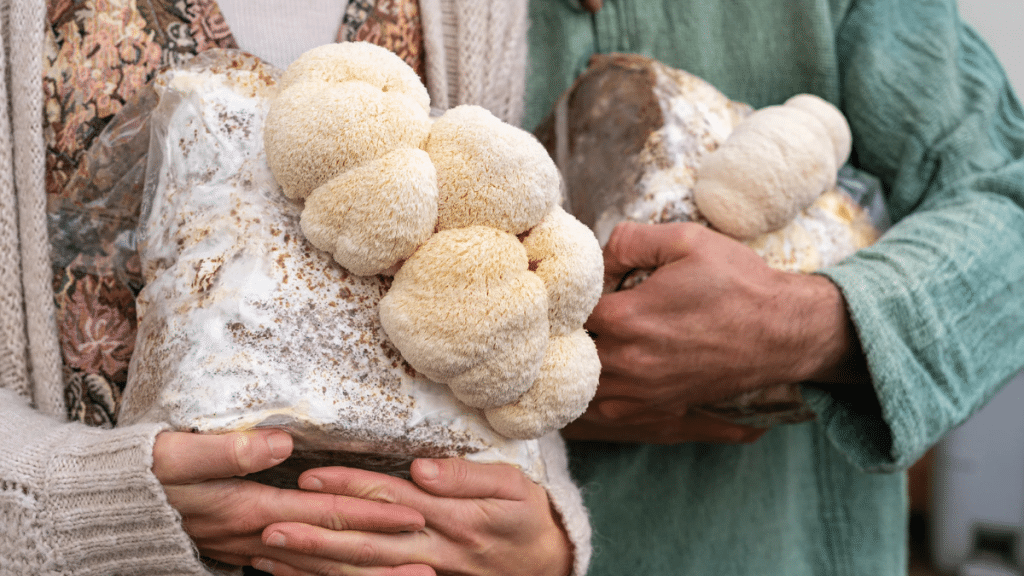Many people dream of cultivating Lion’s Mane mushrooms, which are renowned for their distinctive flavor and brain-boosting properties. These mushrooms are not just a culinary delight but also a rewarding gardening project. A spore kit is your gateway to success, providing everything you need to start.
If you’re unsure where to begin, trusted companies like Denver Spore Company can guide you. Their expertise makes mushroom growing accessible to everyone. This hands-on experience connects you with nature while producing something truly valuable. Let’s explore how to make your mushroom-growing journey successful.
Choose the Right Environment
Creating the perfect environment is crucial for growing Lion’s Mane mushrooms. These fungi thrive in cool, humid spaces with indirect light. Basements or shaded corners of your home often work well for this purpose. Ensure the temperature stays between 60 and 75 degrees Fahrenheit for best results. Humidity levels should be maintained at around 90 percent to replicate their natural habitat.
Use a spray bottle to mist the growing area daily, avoiding excessive moisture that can cause the substrate to become too wet. Proper airflow is also necessary, so avoid sealing the space completely. A small fan can help circulate air gently without drying out the kit. Monitoring these factors ensures healthy mushroom development over time.
Understand the Growth Stages
Lion’s Mane mushrooms go through distinct stages during their growth cycle. First, tiny pins will emerge from the substrate within one to two weeks. These pins are delicate, so handle them with care during this phase. Over the next week, they’ll grow larger and develop their signature fluffy appearance. Patience is key, as rushing the process can harm your harvest.
Once the mushrooms reach full size, they’ll have long, cascading spines. Harvest them before the spines turn brown for the best flavor and texture. Knowing these stages helps you anticipate what to expect and stay motivated. Regular observation keeps you connected to the growth process every step of the way.
Maintain Consistent Care
Consistency is the secret to successfully growing mushrooms. Check on your kit daily to ensure all conditions remain stable. Mist the substrate lightly if it feels dry to the touch. Avoid overwatering, as soggy conditions can lead to contamination. Keep an eye out for mold or unusual colors, which signal potential issues.
Rotate the kit occasionally to ensure even exposure to light and humidity. If you notice slow growth, adjust the temperature or airflow slightly to optimize conditions. Minor tweaks can make a big difference in the overall health of your mushrooms. Staying attentive ensures that your efforts yield a bountiful harvest.
Harvest at the Right Time
When it comes to harvesting Lion’s Mane mushrooms, timing makes all the difference. Wait until the spines are long and white but haven’t started turning yellow or brown. Use a sharp knife to cut the mushrooms at the base without damaging the substrate. This technique promotes fresh growth, setting the stage for future harvests.
Handle the mushrooms gently to avoid bruising or tearing the delicate structure. After harvesting, store them in a paper bag in the fridge to maintain freshness. Proper storage extends their shelf life and preserves their unique flavor. Learning to harvest correctly maximizes both yield and quality for your efforts.
Starting your journey with a trusted supplier like the Denver Spore Company sets you up for success. Their kits simplify the process, giving you confidence as a beginner grower. Growing Lion’s Mane mushrooms is a fulfilling experience that brings nature into your home. With patience and care, you’ll soon enjoy fresh, homegrown mushrooms packed with nutrients. Why wait to start this rewarding hobby? Take the first step today by exploring local spore kits.
